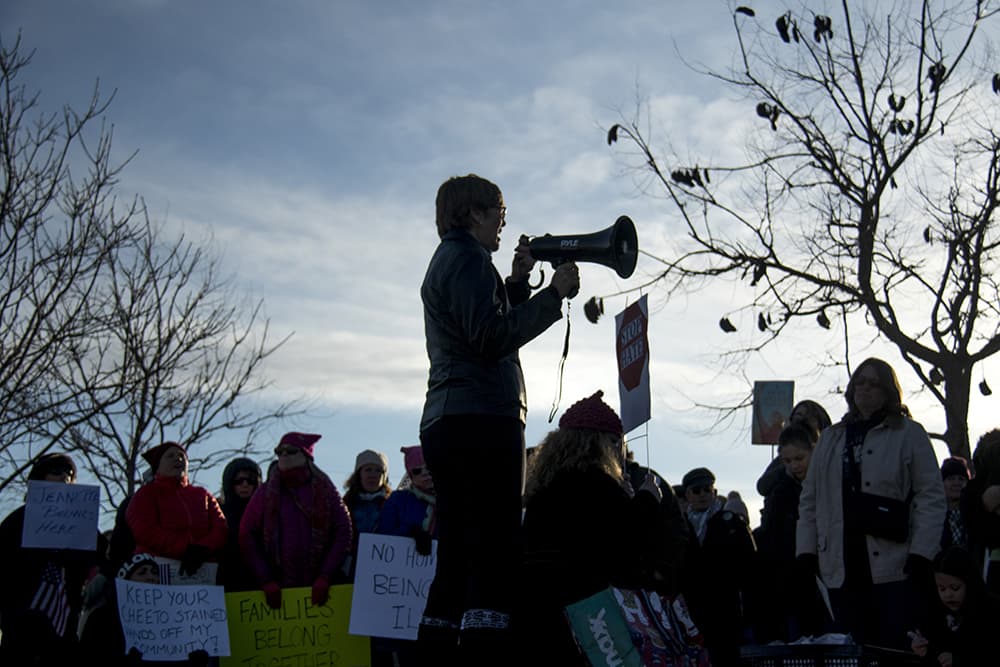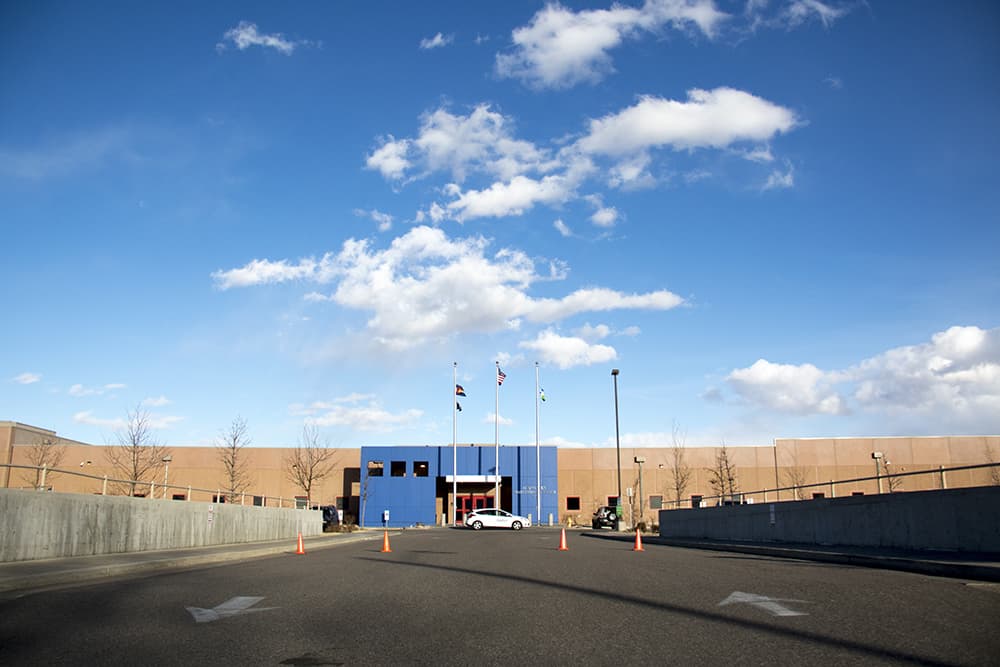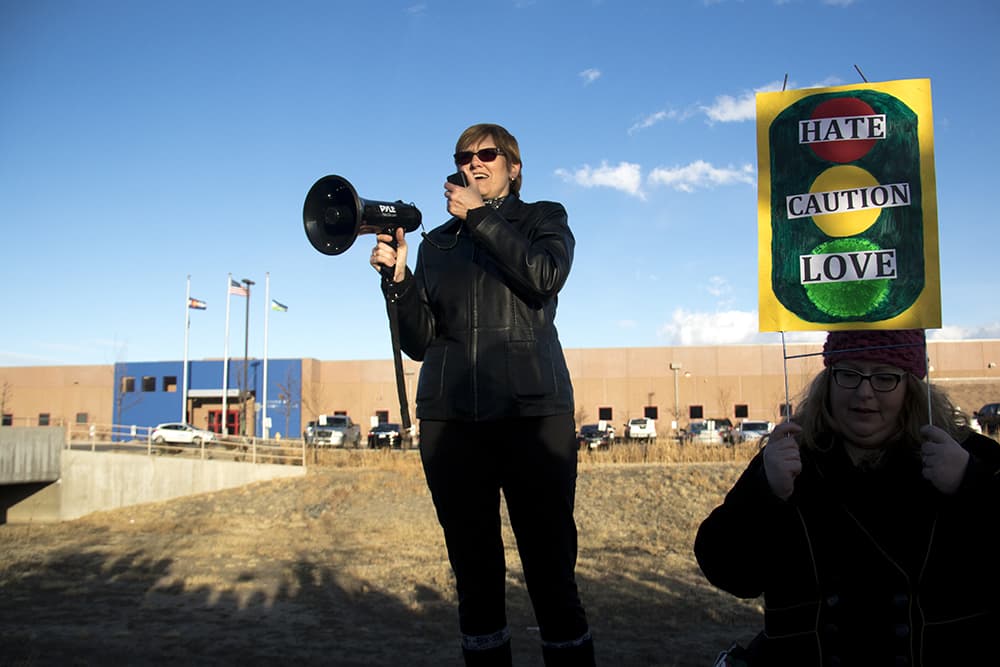
A group of nine people have scored a significant legal victory in their lawsuit against the private company that operates the immigration detention center in Aurora where they were held.
The lawsuit began in 2014, when the original plaintiffs claimed that they had been forced to do janitorial and clerical work at the detention facility for $1 per day. They also claimed that detainees were threatened with solitary confinement if they didn't clean toilets and showers.
GEO is a for-profit multinational company that works on contract with U.S. Immigration and Customs Enforcement. The Aurora facility has capacity for roughly 1,500 people, according to legal filings.
"Plaintiffs allege that GEO maximizes its profits at that facility by exploiting conscripted, coerced, and underpaid detainee labor to clean, maintain, and operate the facility," an attorney for the plaintiffs wrote in a filing.
"By relying on these workers, GEO is able to maintain its entire facility — a facility that detains thousands of people every year — with only one non-detainee janitor on the payroll."
On Monday, senior federal judge John Kane ruled that an entire class of some 60,000 people -- those who had been held at the facility any time since 2004 -- could be certified as a class participating in the lawsuit.
"What happened is that the federal court certified a class, which at first blush sounds like a procedural issue in a class-action lawsuit -- but it’s actually tremendously important in the vindication of vulnerable people," said Nina DiSalvo, an attorney for the plaintiffs and the executive director of Towards Justice.
This does not mean that the plaintiffs have won their lawsuit. Instead, it means that the nine original plaintiffs can now pursue damages not just for themselves but on behalf of everyone else in the class.
"So, all up to say 60,000 people who are now our clients -- would be able to benefit from the work that our nine named plaintiffs are doing," DiSalvo said.

About the claims:
The lawsuit argues that the $1-a-day labor program was unfair to detainees.
"Paying those people a dollar a day -- beyond being clearly less than minimum wage -- unjustly riches GEO because they don’t have to pay to maintain the cost of their facility by hiring workers in aurora who probably need jobs," DiSalvo told Denverite.
She noted that, unlike prison inmates in labor programs, people at the GEO facility "have not been found to have violated any law," and that in any case they are accused of civil, not criminal, violations.
For its part, GEO argued that this question should be considered case-by-case, rather than for the whole class at once.
Separately, on the forced-toilet-cleaning claims, GEO argued that "perception of a threat is subjective," and none of the nine plaintiffs were ever actually put in solitary for refusing to clean, as the judge wrote.
The judge didn't accept that argument. He wrote that the threat of solitary alone was a way of coercing labor.
"The nature of detention is unique in that it allows the detainer to almost fully control the experience of the detainee," the judge wrote.

How much money are we talking about?
DiSalvo wasn't ready to estimate what kind of monetary damages her clients could get if they won the case.
"I think GEO’s ... exposure here is substantial, but I can’t put a number on it prior to discovery," she said.
A victory for the plaintiffs could benefit, potentially, everyone who came through the facility starting in 2004, 10 years prior to the filing of the case.
"They have limited financial resources and reside in countries around the world. It is very likely that these claims would not be brought by individual detainees, especially considering the case‘s innovative nature," the judge noted.
In a written statement, GEO spokesman Pablo Paez said:
"We have consistently, strongly refuted these allegations, and we intend to continue to vigorously defend our company against these claims. The volunteer work program at immigration facilities as well as the wage rates and standards associated with the program are set by the Federal government. Our facilities, including the Aurora, Colo. Facility, are highly rated and provide high-quality services in safe, secure, and humane residential environments pursuant to the Federal Government’s national standards."
DiSalvo responded:
"GEO continues to ignore the central claim that detainees are forced to work without pay under threat of solitary confinement. Meanwhile, the Court has already rejected GEO's argument that the government fixes the wages. And that argument is further undermined by the fact that GEO pays voluntary work program participants in other detention centers more than $1 per day. It is time to think about ways to bring GEO's programs into compliance with the law, not re-litigate the issues. "












